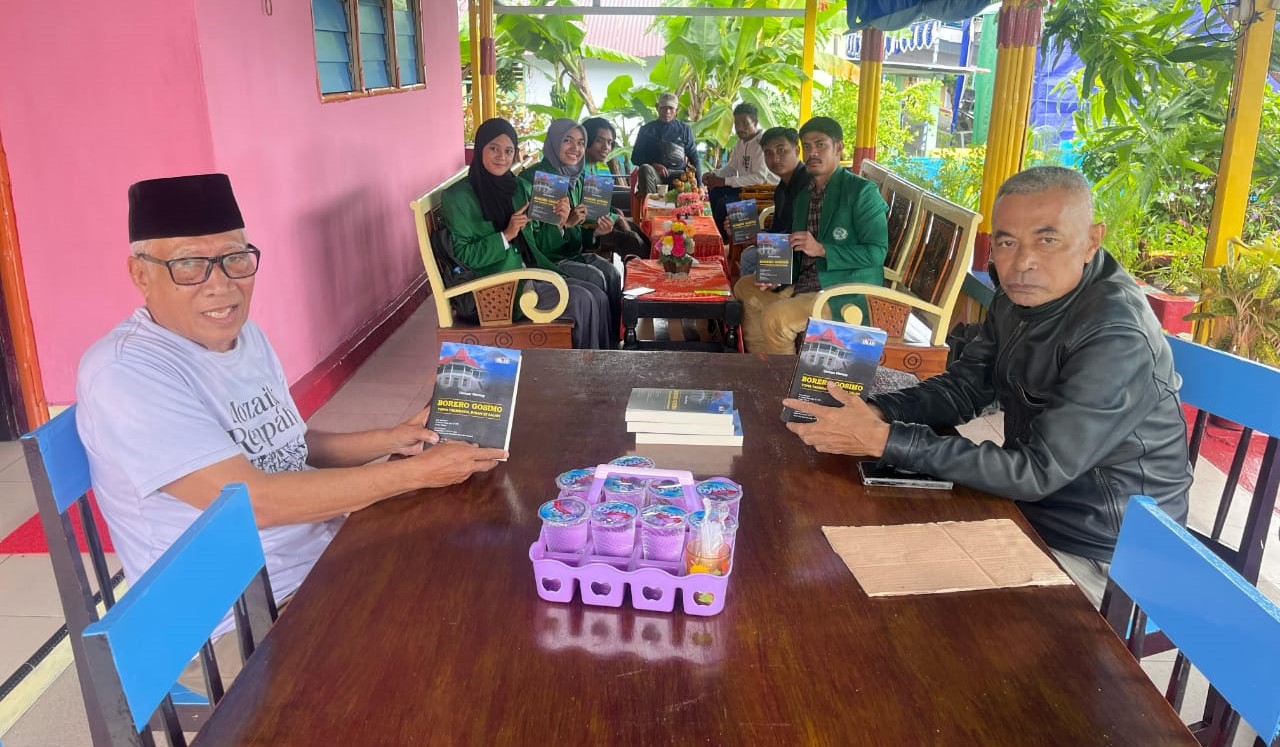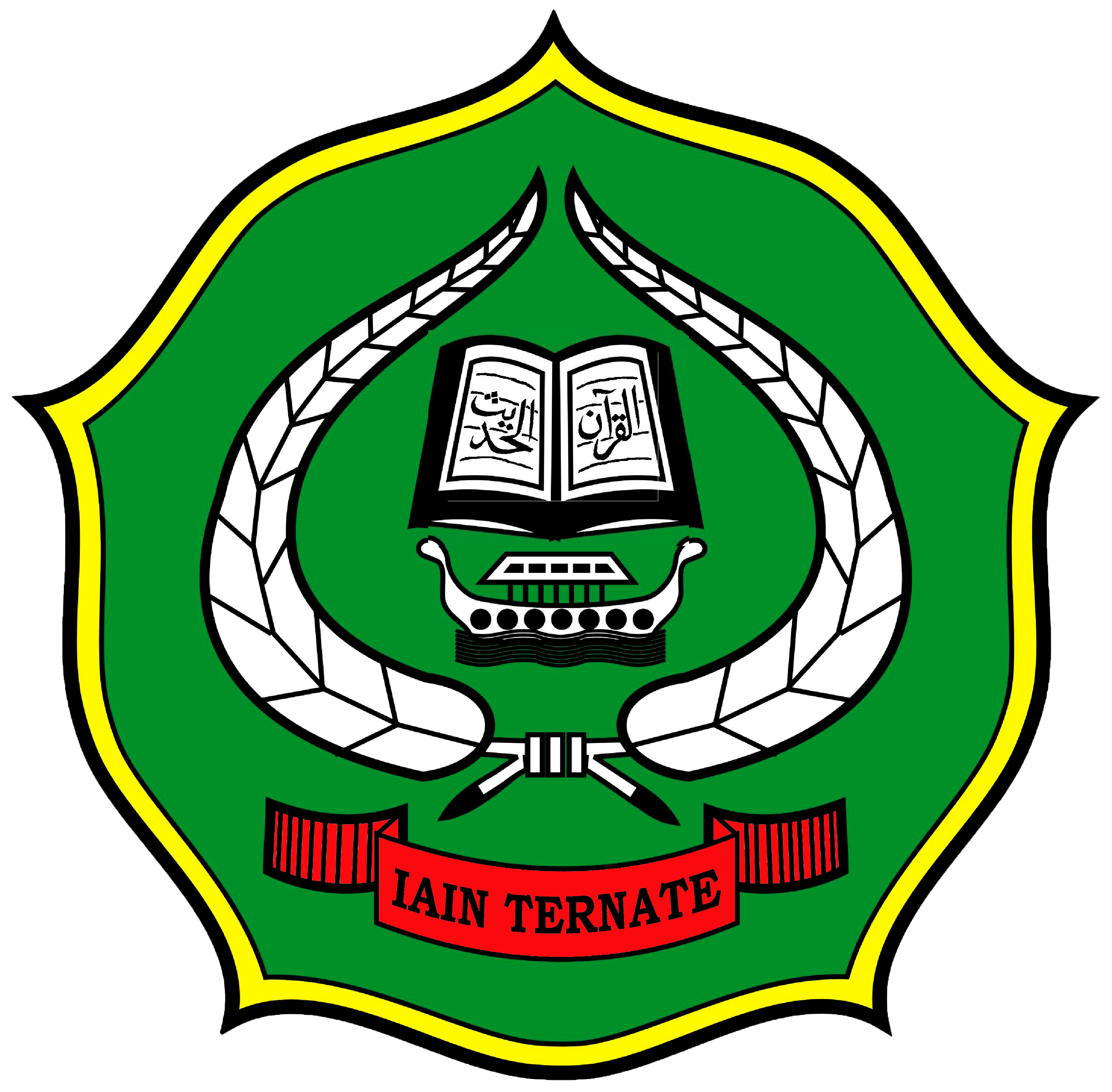
FUAD IAIN Ternate Students Establish Relationships with Jojau Tidore Sultanate and Borero Gosimo's Different Books
TERNATE – Students of the Faculty of Usuluddin Adab and Dawah (FUAD) of the State Islamic Institute (IAIN) Ternate, North Maluku, together with their supervisor and author of the book Borero Gosimo, Usman Nomay, visited the palace of the Tidore Sultanate on Sunday (27/4/2025).
During the visit, in addition to aiming to get to know the traditional officials of the Tidore Sultanate, they also held a book review event for Borero Gosimo with Jojau of the Tidore Sultanate Amin Faroek.
The supervisor of FUAD students and the author of the book Borero Gosimo, Usman Nomay when met at the IAIN Ternate campus, Monday (4/28/2025) morning said, the visit to the Tidore palace was so that students would learn stories about the history of the Tidore Sultanate, especially the role of Sultan Saidul Jehad Muhammad el Mabus Amirudin Syah Kaicil Paparangan or Sultan Nuku and Sultan Zainal Abidin Syah.
"There are two agendas in the visit to the Tidore Sultanate palace, namely friendship and reading books," he said.
"They (students, ed.) also visited and saw up close the tombs of Sultan Nuku and Sultan Zainal Abidin Syah," he added.
He explained that FUAD IAIN Ternate students, especially the Islamic Civilization History (SPI) study program, often conduct historical research on four sultanates in North Maluku.
For that reason, the visit to the Tidore Sultanate palace, he said, students wanted to be closer to Jojau, the Tidore Sultanate, so that when they conduct historical research, it will be easier to access information from Jojau, the Tidore Sultanate.
In addition, he continued, in the Borero Gosimo book review event, students can also clearly understand the contents of the book, which are none other than wise messages from ancestors for the people of Tidore Islands.
According to him, by understanding the wise messages or Borero Gosimo, students can later implement them in their daily lives. Because, Borero Gosimo, he said, is essentially not much different from the message in the Koran and that conveyed by the Prophet Muhammad SAW.
"The principle, which they understand from the wise messages written in the book, can later be implemented in everyday life," he said. (*)
During the visit, in addition to aiming to get to know the traditional officials of the Tidore Sultanate, they also held a book review event for Borero Gosimo with Jojau of the Tidore Sultanate Amin Faroek.
The supervisor of FUAD students and the author of the book Borero Gosimo, Usman Nomay when met at the IAIN Ternate campus, Monday (4/28/2025) morning said, the visit to the Tidore palace was so that students would learn stories about the history of the Tidore Sultanate, especially the role of Sultan Saidul Jehad Muhammad el Mabus Amirudin Syah Kaicil Paparangan or Sultan Nuku and Sultan Zainal Abidin Syah.
"There are two agendas in the visit to the Tidore Sultanate palace, namely friendship and reading books," he said.
"They (students, ed.) also visited and saw up close the tombs of Sultan Nuku and Sultan Zainal Abidin Syah," he added.
He explained that FUAD IAIN Ternate students, especially the Islamic Civilization History (SPI) study program, often conduct historical research on four sultanates in North Maluku.
For that reason, the visit to the Tidore Sultanate palace, he said, students wanted to be closer to Jojau, the Tidore Sultanate, so that when they conduct historical research, it will be easier to access information from Jojau, the Tidore Sultanate.
In addition, he continued, in the Borero Gosimo book review event, students can also clearly understand the contents of the book, which are none other than wise messages from ancestors for the people of Tidore Islands.
According to him, by understanding the wise messages or Borero Gosimo, students can later implement them in their daily lives. Because, Borero Gosimo, he said, is essentially not much different from the message in the Koran and that conveyed by the Prophet Muhammad SAW.
"The principle, which they understand from the wise messages written in the book, can later be implemented in everyday life," he said. (*)
